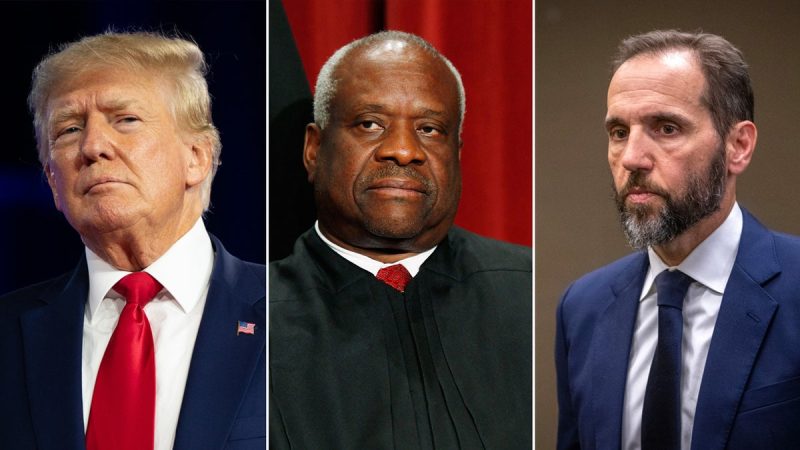In a recent event at the University of Notre Dame, Justice Clarence Thomas of the United States Supreme Court raised a crucial question regarding the legitimacy of special counsels in the context of their prosecution of public officials, particularly former President Donald Trump. This discussion reignites the ongoing debate surrounding the authority and accountability of special counsels in high-profile cases.
Justice Thomas expressed concerns about the potential conflicts of interest that arise when special counsels are appointed to investigate and prosecute public figures. He questioned whether the appointment of special counsels undermines the traditional mechanisms of accountability, such as leaving high-profile cases to career prosecutors and the Department of Justice.
One of the central arguments made by Justice Thomas is that special counsels, by their nature, lack direct accountability to the traditional checks and balances present in the constitutional structure of the United States government. This raises questions about the legitimacy of their actions and the potential for unchecked power in the pursuit of justice.
Critics of special counsels have long voiced similar concerns about the lack of oversight and accountability in their investigations. They argue that the broad investigative authority granted to special counsels can lead to unchecked intrusion into the private lives and affairs of public officials, potentially compromising the principles of due process and fairness.
Furthermore, the high-profile nature of cases involving special counsels often generates significant media attention and public scrutiny, which can further complicate the pursuit of justice. The intense public and political pressure surrounding these cases may inadvertently influence the decisions and actions of special counsels, raising questions about the impartiality and fairness of their investigations.
However, proponents of special counsels argue that their independence from political influence and their specialized expertise make them uniquely suited to handle complex and sensitive cases involving public officials. They contend that special counsels are necessary to ensure transparency and accountability in cases where there may be conflicts of interest within the Department of Justice.
Despite the ongoing debate and controversy surrounding the legitimacy of special counsels, it is clear that the issue remains a complex and multifaceted one with no easy answers. As Justice Thomas highlighted, the balance between accountability and independence in the pursuit of justice is a central question that requires careful consideration and thoughtful deliberation moving forward. Only through open dialogue and a commitment to upholding the principles of justice and fairness can we navigate the challenges posed by special counsels in our legal system.




























